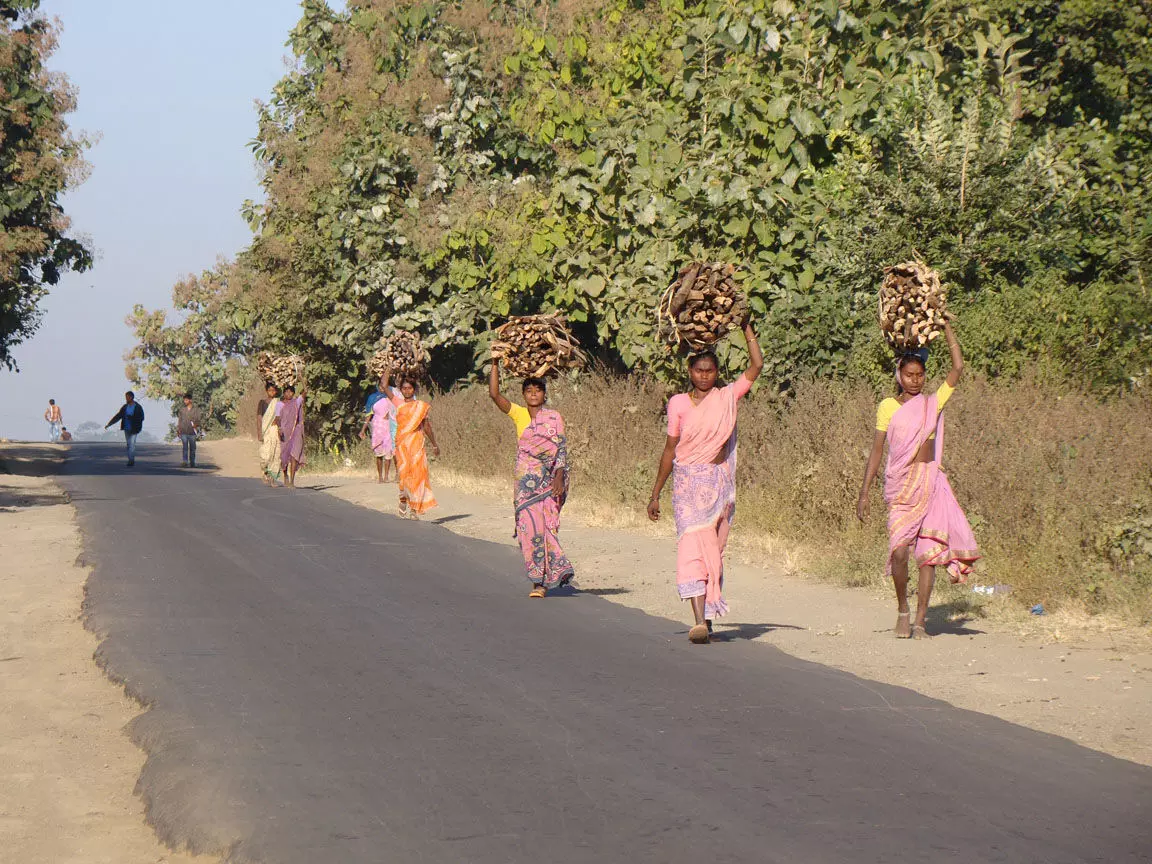Telangana delays community forest rights for Adilabad tribals
The FRA envisages giving rights to forest lands to individual tribals called Individual Forest Rights (IFR) to local communities, subject to its provisions and CFR.
By S. Harpal Singh
Adilabad: The Telangana State government seems to be dragging its feet on the question of granting Community Forest Rights (CFR) to tribal communities under the Scheduled Tribes and Other Traditional Forest Dwellers (Recognition of Forest Rights) Act, 2006 (FRA).
For example, In the Adilabad district, the Revenue and the Forest department have stayed away from what would have been the first rollout of the process meant for granting such rights after a joint verification of claims towards CFR.
CFR claims verification is complete at the village council level
Gram sabhas or village councils have already been conducted by the Integrated Tribal Development Agency (Utnoor) through the NGO, Centre for Collective Development (CCD), to verify the CFR claims in the villages of Kolam and Thotti tribes which are categorised as Particularly Vulnerable Tribal Groups (PVTG). However, the absence of mandal-level revenue and forest officials has evidently diluted the purpose of implementing the CFR.
The FRA envisages giving rights to forest lands to individual tribals called Individual Forest Rights (IFR) to local communities, subject to its provisions and CFR.
“The CFR has scope for forest protection, its regeneration and generation of livelihoods for a whole lot of tribals while the IFR could lead to further forest degradation,” opined Kumra Vittal Rao, the manager of the CCD team involved in the identification of potential forests within given PVTG habitations in Adilabad district and conduct of gram sabhas, apparently to drive home the point that implementation of CFR is more desirable.
Communities without forest land were falling behind
The Bharat Rural Livelihoods Foundation (BRLF) under the Union Rural Development Ministry took up the programme initially as a pilot project in select villages in Adilabad and Kumuram Bheem Asifabad district to identify gaps in the development of tribal habitations. The exercise revealed that a major gap existed in the area of communities not owning forests thereby failing to eke out livelihoods.
Following this, the Telangana Tribal Welfare Department and the BRLF extended their agreement and surveyed the entire state. The respective ITDAs supplied a list of PVTG habitations which the NGOs following it up with their surveys.
The Utnoor ITDA gave a list of 222 such habitations in Adilabad and Nirmal districts to the CCD. After the surveys, the ITDA and CCD conducted 31 gram sabhas, none of which were attended by the revenue or forest departments.
Adilabad district forest officer Prashant Bajirao Patil said the government had not communicated anything about the gram sabhas in question. “In fact, we do not even know if such an exercise is being conducted and by whom,” he said.
“We have sensitised the tribals in the habitations assigned to us and look forward to taking the programme to its logical next step. The villagers are looking forward for it too,” Vittal Rao pointed out.
“One of the examples we cite during the programmes is that of Panchgaon in Chandrapur of Maharashtra. The tribal community there is earning Rs 1 crore per year by way of harvesting bamboo,” he added.
Tekam Ayyu, the Kolam tribe headman of Laxmipur in Talamadugu mandal where the gram sabha was held on June 21, committee himself to protect the identified forest once the claim is settled. “You talk of 'jal, jangal, zameen' for ethnic people but never actually implement it,” he remarked.
The joint survey of the identified forests will entail the formulation of a management plan by the locals concerned. It will include the right to use traditional seasonal resource access and access to grazing, water, biodiversity, etc.